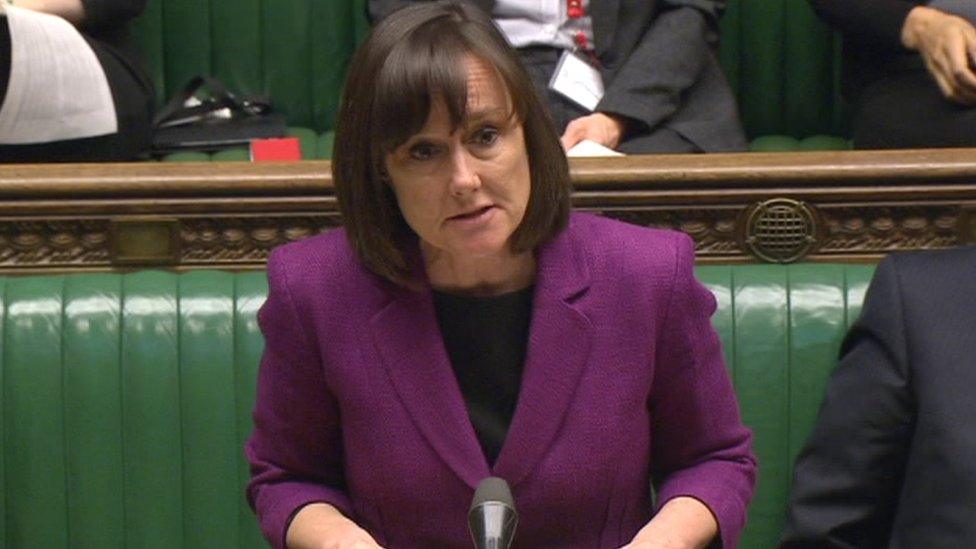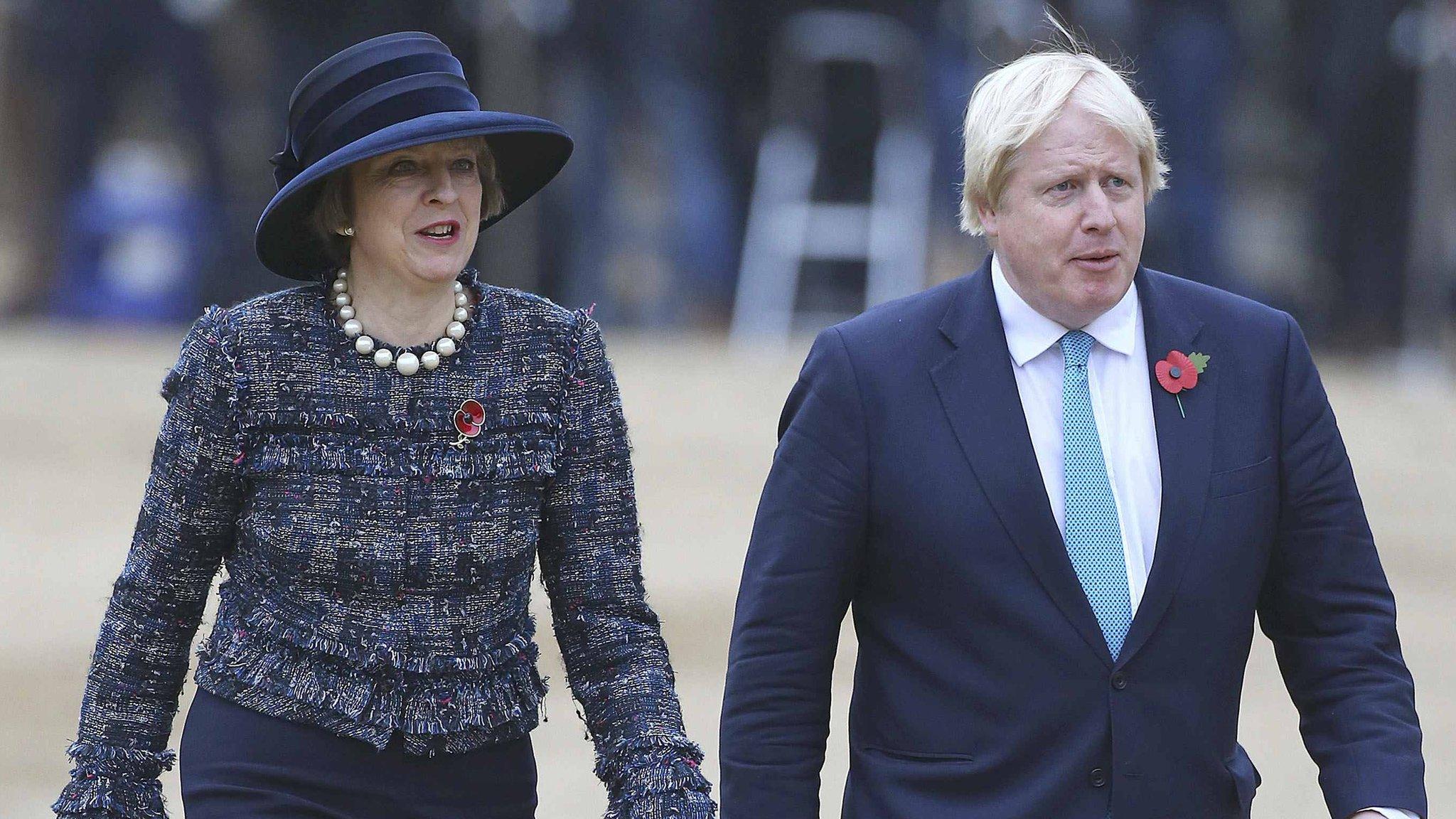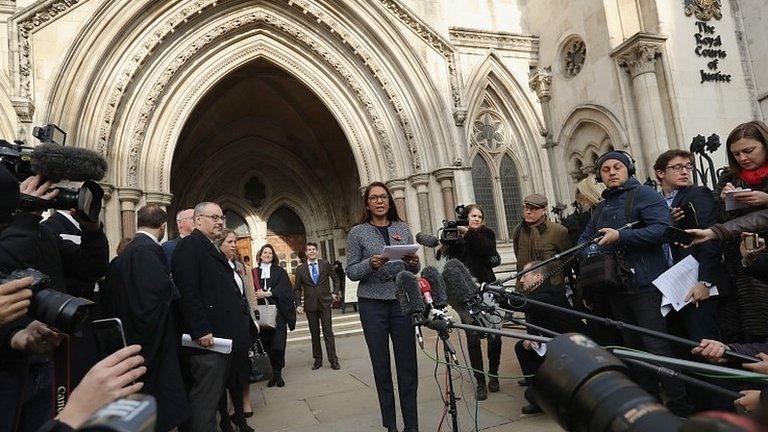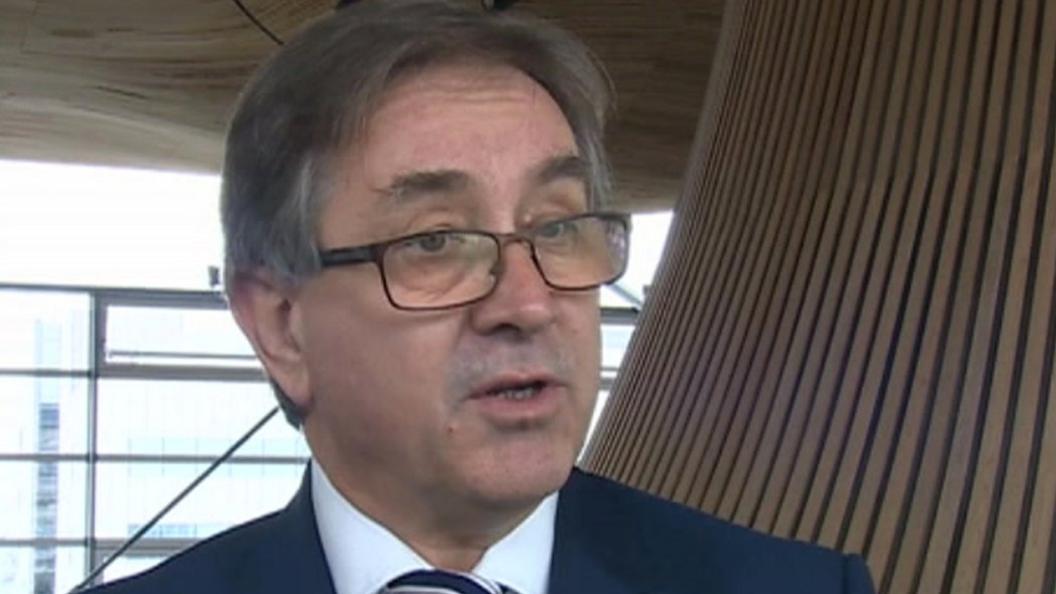Brexit Article 50 certainty needed by firms, Cairns says
- Published
- comments
Alun Cairns says firms need certainty on the "direction of travel"
Businesses need stability after the UK government's High Court defeat over the trigger for leaving the EU, Welsh Secretary Alun Cairns has said.
He said he was disappointed that judges ruled ministers could not invoke Article 50 - starting formal Brexit negotiations - without MPs' approval.
Mr Cairns was at a breakfast meeting with business leaders in Cardiff.
Welsh Conservative MP David Davies warned attempts to block Brexit could lead to an early general election.
Mr Cairns told BBC Wales that there was an "obligation" on politicians in all UK parliaments to give firms certainty about the UK's departure from the European Union.
"What investors and employers want is the direction of travel and that's what we're focused on," he said.
The UK government has said it intends to appeal against Thursday's High Court ruling.
First Minister Carwyn Jones has said that would be a mistake, but on Friday the Welsh Government announced it would apply to have a voice in the appeal.
'Europe's interest'
Mr Cairns claimed the UK was in a "strong position" on the Brexit negotiations as it had one of the world's fastest growing economies.
He said he wanted to work with the Welsh Government to get "a good deal" for Wales, and also wanted to work with Europe.
"It's in our interests that Europe grows and it's in Europe's interest that the UK and Welsh economies grow," he said.
Mr Davies, MP for Monmouth and chair of the Welsh Affairs Select Committee, warned that politicians seeking to keep the UK in the EU would now use the judges' decision to try to block Brexit.
"There'll be members of parliament looking to find excuses and flaws in the legislation that the government bring forward and the negotiation package, if you like, to try and vote against it," he told BBC Radio Wales.
"This is all about trying to undo the result of the referendum - let's be in no doubt about that."
He added: "This could easily lead to an early general election if that's what it takes to get this sorted out."

Jo Stevens says Parliament has an important role to play in Brexit
But Labour's Shadow Welsh Secretary Jo Stevens said Parliament now needed to do its job and scrutinise the UK government's approach to Brexit.
"How we leave the European Union was not on the ballot paper and there are a number of ways in which that could happen," she told BBC Radio Wales.
"There's no consensus on that yet because the government haven't yet disclosed any details of how they intend to approach both the negotiations and the end point when we leave the EU.
"So of course Parliament should scrutinise those plans - that's exactly what Parliament is there to do.
"The court decision yesterday simply says, as we all knew, that Parliament has a clear role - a legal role, a constitutional role and an incredibly responsible role to try and influence how that exit happens."
Owen Smith says he would not vote to make his constituents worse off
However, Pontypridd Labour MP Owen Smith told the BBC's Daily Politics programme he could "potentially" vote against the triggering of Article 50 in a Commons vote.
"Most [Labour] colleagues feel that we couldn't possibly do anything other than trigger Article 50 - I disagree with them," he said.
"If we have no further clarity as to whether Britain is going to be better or worse off as a result of the ending of the negotiations then I think the right thing for me to do on behalf of my constituents is not to vote to make them worse off."
- Published4 November 2016

- Published3 November 2016

- Published4 November 2016

- Published3 November 2016
